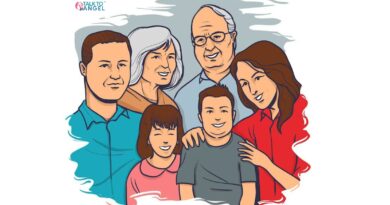The Role of Child Therapists in India: Guiding Young Minds
Children often struggle with emotional, behavioral, and developmental challenges that require specialized intervention. In India, child therapists play a crucial role in addressing these issues, helping children navigate difficulties and fostering their emotional well-being.
Who Are Child Therapists?
Child therapists are professionals trained to understand, assess, and treat mental health concerns in children and adolescents. They use various therapeutic techniques to help children cope with stress, anxiety, trauma, specific learning disablities, and emotional struggles. Child therapists work closely with parents, teachers, and caregivers to create a supportive environment for a child’s growth.
Top Child Therapists in India
India is home to many highly qualified child therapists who specialize in treating developmental delay, emotional, and psychological issues. Some renowned therapists in the field include:
- Dr. R. K. Suri – A highly experienced Chartered Clinical Psychologist with expertise in child psychology, neuropsychological assessment, and counseling.
- Mrs. Kala Sengupta – An RCI-licensed Clinical Psychologist with over 30 years of experience in child behavioral issues, ADHD, and learning disabilities.
- Dr. Karuna Singh – A Psychotherapist specializing in psychodynamic therapy and CBT, focusing on children with anxiety, ADHD, and behavioral challenges
- Mr. Utkrash Yadav – A dedicated Clinical Psychologist helping children with adjustment disorders, emotional difficulties, and academic struggles.
Roles and Responsibilities of a Child Therapist
Child therapists take on multiple responsibilities, ensuring holistic development and emotional well-being. Their key responsibilities include:
- Assessment and Diagnosis: Identifying psychological, emotional, and behavioral issues in children through clinical interviews, psychological tests, and observations.
- Individual and Group Therapy: Conducting therapy sessions to help children manage their emotions, behaviors, and social interactions.
- Parental Counseling: Guiding parents on effective ways to support their child’s mental health.
- Collaboration with Schools: Working with teachers and school counselors to ensure a supportive learning environment.
- Developing Treatment Plans: Creating tailored intervention strategies to address specific concerns such as anxiety, depression, autism spectrum disorder (ASD), or learning disabilities.
- Crisis Intervention: Addressing immediate psychological distress due to trauma, bullying, or emotional abuse.
Qualifications of a Child Therapist
To become a child therapist in India, professionals need a strong educational background in psychology. The necessary qualifications include:
- Bachelor’s Degree (BA/BSc in Psychology) – The foundation for understanding human behavior and mental health.
- Master’s Degree (MA/MSc in Clinical or Counseling Psychology) – Specialized training in therapy techniques and psychological assessments.
- Additional Certifications – Postgraduate diplomas or certifications in Child Psychology, Play Therapy, Cognitive Behavioral Therapy (CBT), or Applied Behavior Analysis (ABA) enhance expertise.
- RCI License (for Clinical Psychologists) – Required for practicing clinical psychology and conducting psychological assessments.
- Supervised Internships – Hands-on experience in child counseling and therapy.
Qualities of an Effective Child Therapist
The best child therapists possess a unique set of skills and qualities that enable them to work effectively with children. These include:
- Empathy and Patience: Understanding a child’s emotions and challenges with compassion.
- Strong Communication Skills: Explaining complex emotions in a way that children and parents can understand.
- Creativity and Playfulness: Using creative methods like art therapy, play therapy, and storytelling to engage children.
- Adaptability: Tailoring therapeutic techniques to suit each child’s needs.
- Problem-Solving Abilities: Developing innovative approaches to address behavioral or emotional difficulties.
- Trustworthiness and Ethics: Ensuring confidentiality and providing a safe space for children to express themselves.
Areas Covered by Child Therapists
Child therapists address a wide range of psychological and developmental issues, including:
- Anxiety and Depression: Helping children manage excessive worry, sadness, and low self-esteem.
- Attention-Deficit/Hyperactivity Disorder (ADHD): Assisting children with ADHD in improving focus, impulse control, and behavioral regulation.
- Autism Spectrum Disorder (ASD): Providing support in social skills, communication, and sensory integration.
- Learning Disabilities (Dyslexia, Dyscalculia, etc.): Enhancing academic performance through tailored intervention strategies.
- Trauma and PTSD: Supporting children with post-traumatic stress disorder who have experienced abuse, neglect, or other traumatic events.
- Behavioral Issues: Managing aggression, defiance, and social difficulties.
- Grief Counseling: Helping children cope with the loss of a loved one.
Types of Treatments and Therapeutic Approaches
Child therapists employ various evidence-based therapies to help children overcome challenges. Some of the most effective treatments include:
- Cognitive Behavioral Therapy (CBT): Helps youngsters identify and change unfavorable mental habits.
- Play Therapy: Uses toys, art, and games to allow children to express emotions.
- Applied Behavior Analysis (ABA): Often used for children with autism to reinforce positive behaviors.
- Mindfulness and Relaxation Techniques: Teaches children how to manage stress and anxiety.
- Family Therapy: Family Therapy engages parents and siblings in the therapeutic process to improve family dynamics.
- Social Skills Training: Helps children develop interpersonal skills and build confidence.
- Expressive Arts Therapy: Uses of art therapy, music, dance, and drama to enhance emotional expression and healing.
Conclusion:
Child therapists in India play an essential role in shaping the mental well-being of the younger generation. With their expertise in therapy and counseling, they guide children through emotional and psychological challenges, helping them lead healthier, happier lives. Whether dealing with anxiety, behavioral issues, learning disabilities, or trauma, child therapists provide invaluable support, ensuring that every child gets the care and attention they need.
If you’re a parent seeking professional help for your child, reaching out to a qualified child therapist can make a significant difference. The right intervention at the right time can positively impact a child’s emotional and psychological development, setting them up for a brighter future.
References:
American Psychological Association. (2020). Publication manual of the American Psychological Association (7th ed.). American Psychological Association.
Kazdin, A. E. (2017). Evidence-based psychotherapies for children and adolescents (3rd ed.). The Guilford Press.
Cohen, N. J. (2018). Language impairment and psychopathology in infants, children, and adolescents. SAGE Publications.
Landreth, G. L. (2012). Play therapy: The art of the relationship (3rd ed.). Routledge.
Mash, E. J., & Wolfe, D. A. (2018). Abnormal child psychology (6th ed.). Cengage Learning.




